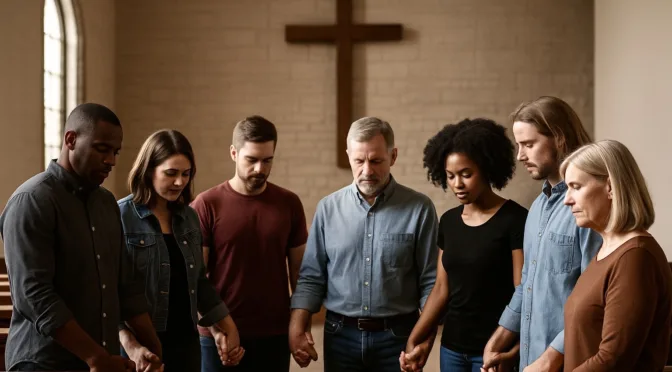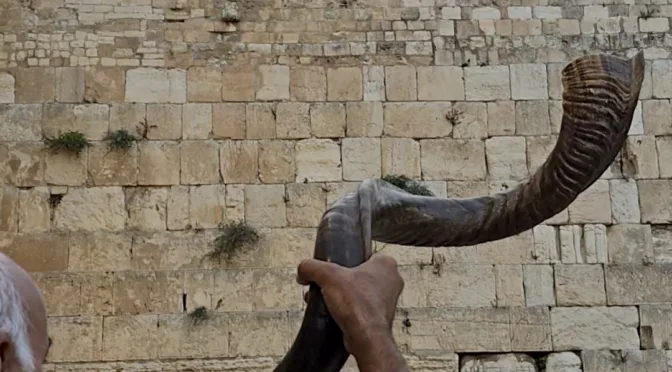The lack of unity in the one Church, which is the body of Christ, remains a profound sorrow and significant obstacle to the fulfillment of Christ’s prayer for His followers to be one as He and the Father are one. The great divide between Catholicism and Protestantism, rooted in historical, theological, and doctrinal differences, presents challenges that need to be bridged to reunite the Church.
Historical and Theological Differences
The Reformation of the 16th century marks the most significant split in Christian history, leading to the formation of Protestant churches separate from the Roman Catholic Church. Key figures like Martin Luther and John Calvin raised objections to certain Catholic doctrines and practices, notably indulgences and the authority of the Pope. This period of upheaval and reform established theological differences that persist today.
Authority and Scripture
A fundamental difference lies in the understanding of authority. The Catholic Church upholds the authority of the Pope and the Magisterium, viewing them as the successors of Peter and the Apostles with the divine authority to interpret Scripture and Tradition. In contrast, Protestantism generally emphasizes sola scriptura, the belief that Scripture alone is the ultimate authority in matters of faith and practice. Bridging this gap requires mutual recognition and respect for the roles of both Scripture and ecclesial authority in guiding the faithful.
Sacraments and Worship
Differences in sacramental theology also divide Catholics and Protestants. The Catholic Church recognizes seven sacraments, viewing them as outward signs instituted by Christ to give grace. Most Protestant denominations acknowledge only two sacraments, baptism and the Lord’s Supper, and often understand them more as symbolic acts of obedience rather than means of grace. Additionally, the form and style of worship differ, with Catholic liturgy being highly structured and sacramental, while Protestant services range from liturgical to informal.
Ecclesiology and Unity
Catholic ecclesiology views the Church as a visible, hierarchical institution established by Christ, with a clear and unified structure. Protestant ecclesiology, however, is more varied, with many denominations and independent churches each having their governance and doctrinal stances. Achieving unity would require addressing the issue of ecclesial identity and exploring ways to recognize the validity and complementarity of different church structures within the broader body of Christ.
Moving Towards Reconciliation
Bridging these differences necessitates a spirit of humility, dialogue, and mutual love. Initiatives such as the ecumenical movement have made significant strides in fostering understanding and cooperation between Catholics and Protestants. The Second Vatican Council’s Unitatis Redintegratio emphasized the importance of Christian unity and opened doors for dialogue.
Reconciliation efforts must focus on what unites rather than what divides. Both Catholics and Protestants profess the Nicene Creed, acknowledging one God, one Lord Jesus Christ, and one Holy Spirit. They share a common mission to preach the Gospel, serve the needy, and bear witness to God’s love in the world.
Prayer and joint service projects can also play crucial roles in healing divisions. When Christians of different traditions come together to serve their communities and pray for one another, they embody the unity Christ desires for His Church. Theological dialogues should continue, aiming to find common ground and mutual understanding on contentious issues.
The Role of Anointed Individuals
Throughout history, God has often chosen and anointed individuals to lead His people toward renewal and unity. These leaders, filled with the Holy Spirit, have the vision, courage, and wisdom to bridge divides and foster reconciliation. In our times, the Lord needs to raise up such anointed leaders within both Catholicism and Protestantism. These individuals would be deeply rooted in Scripture, committed to the truth, and passionate about the unity of the Church. Their influence and example can inspire others to seek common ground and work together for the greater good of the body of Christ.
Awakening the Remnant
God always preserves a faithful remnant, those who remain steadfast in their commitment to Him and His Word. The Lord needs to awaken this remnant within the Church, igniting a revival of faith and love that transcends denominational boundaries. This awakening involves a renewed emphasis on prayer, repentance, and a sincere desire to see Christ’s prayer for unity fulfilled. As this remnant rises, they can serve as catalysts for change, encouraging their brothers and sisters to prioritize the unity of the Church over doctrinal disputes and historical grievances.
Embracing the Power of the Holy Spirit
The Holy Spirit is the ultimate agent of unity within the Church. As believers, we must seek the guidance and empowerment of the Holy Spirit in all our efforts toward reconciliation. The Spirit can soften hearts, open minds, and bring about the deep healing needed for genuine unity. Through the gifts of the Spirit, such as wisdom, understanding, and discernment, Christians can navigate the complexities of doctrinal differences and find pathways to mutual respect and cooperation.
Practical Steps Towards Unity
- Prayer and Fasting: The Church must commit to regular prayer and fasting, seeking God’s intervention and guidance in the quest for unity. As the Apostle Paul wrote, “I urge you, brothers and sisters, by our Lord Jesus Christ and by the love of the Spirit, to join me in my struggle by praying to God for me” (Romans 15:30, AMP). Collective intercession can pave the way for divine breakthroughs.
- Theological Dialogue: Constructive theological dialogue, facilitated by anointed leaders, can help clarify misunderstandings and highlight shared beliefs. These discussions should be characterized by humility, respect, and a genuine desire to understand one another.
- Joint Service Initiatives: Working together in service projects can build relationships and foster unity. Whether it’s caring for the poor, advocating for justice, or spreading the Gospel, these joint efforts demonstrate the power of Christian love and cooperation.
- Educational Programs: Promoting educational programs that teach about the history and beliefs of different Christian traditions can help reduce prejudice and build empathy. Understanding each other’s perspectives is crucial for reconciliation.
Call to Action
Brothers and sisters in Christ, it is time to heed the call for unity within the body of Christ. Let us lay aside our differences, focusing instead on what unites us: our faith in Jesus Christ, our shared mission to spread the Gospel, and our love for God and one another. I urge you to actively seek opportunities for dialogue, prayer, and cooperation with fellow believers across denominational lines. Let us commit to:
- Engage in Regular Prayer: Dedicate time each day to pray for the unity of the Church, asking God to heal divisions and bring reconciliation.
- Foster Understanding: Participate in or organize discussions and educational events that promote understanding and respect between different Christian traditions.
- Serve Together: Join hands in service projects that address the needs of our communities, demonstrating the love of Christ through our actions.
- Support Anointed Leaders: Encourage and support leaders who are working towards unity, recognizing their efforts and praying for their strength and guidance.
- Repent and Forgive: Embrace repentance for past grievances and extend forgiveness to one another, embodying the grace that God has shown us.
Together, let us become instruments of God’s peace, building bridges that honor His name and fulfill His desire for a unified Church.
Prayer
Heavenly Father, Creator of all that is good and holy, we come before You with hearts burdened by the divisions within Your Church. We acknowledge that these wounds are self-inflicted, born of pride, misunderstanding, and sin. Yet, we believe in Your power to heal and restore.
Lord Jesus, You prayed that we might be one, just as You and the Father are one. We humbly ask for Your forgiveness for the times we have allowed our differences to overshadow our shared faith in You. Pour out Your Spirit upon us, that we may seek unity with renewed fervor and sincere hearts.
Holy Spirit, move among us with power and grace. Anoint leaders who will courageously bridge gaps and guide us toward reconciliation. Awaken the remnant, those who are steadfast in their devotion to You, and ignite in them a passion for unity that transcends denominational boundaries.
Grant us the humility to listen, the wisdom to understand, and the love to embrace one another as brothers and sisters in Christ. Help us to focus on what unites us: our love for You and our commitment to Your Gospel. Heal our divisions, Lord, and make us one body, reflecting Your glory to the world.
We pray this in the mighty name of Jesus Christ, our Lord and Savior. Amen.
Conclusion
The great divide between Catholicism and Protestantism can only be bridged with God’s active involvement and the work of the Holy Spirit. By raising up anointed individuals, awakening the faithful remnant, and embracing the Spirit’s power, the Church can move toward the unity that Christ desires. As we pursue this divine mandate, let us remember the words of Jesus: “By this all people will know that you are My disciples if you have love for one another” (John 13:35, AMP). Through love, humility, and a steadfast reliance on God, the Church can become a unified body that reflects the glory of its Head, Jesus Christ.
See Also:








